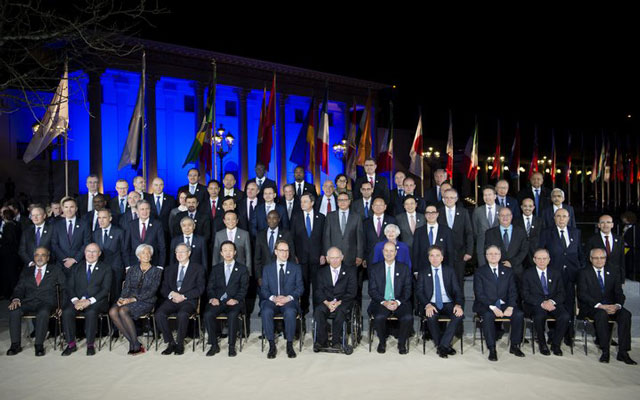
Hamburg, Germany | AFP | World leaders made concessions on trade and climate language to Donald Trump Saturday at the end of the most fractious and riot-hit G20 summit ever, in exchange for preserving a fragile unity of the club of major industrialised and emerging economies.
In a departure from final summit declarations that tend to outline consensus on issues that range from fighting terrorism to financial governance, the extraordinary conclusions this year spelt out differences on core issues.
It acknowledged Trump’s decision to go his own way on taking the United States out of the 2015 Paris climate accord and clearly stated Washington’s wish to continue using and selling fossil fuels that are a main driver of global warming.
The declaration also stated for the first time the right of countries to protect their markets with “legitimate trade defence instruments” — wording that essentially gives Trump wiggle room to push on with his “America First” policy.
Trump, carried to the White House on a wave of public fury over deindustrialisation in vast areas of the United States, has launched “Buy American” and “Hire American” campaigns.
The nationalistic stance has set him on collision course with many of America’s allies, who warned Trump against an isolationist path and starting a trade war.
“Where there is no consensus, the communique spelt out the discord,” said host Chancellor Angela Merkel, who was praised by Russian President Vladimir Putin for finding an “optimal compromise” on the touchiest issue of climate.
French President Emmanuel Macron also hailed the approach, saying that the club found an “indispensable balance” through the text and halted any backsliding on fighting climate change, which is blamed for melting ice caps, rising seas and severe weather events.
The French leader, at his first G20 gathering, said he hadn’t given up on trying to change Trump’s mind on global warming.
Saying that he “never gives up hope on convincing” others, Macron added that “therefore I confirm that I hope to convince him.”
Thomas Bernes from the think-tank Centre for International Governance Innovation described the final declaration as a “masquerade”.
“When compared to the G20 dynamic since the London summit in 2009, it’s a step back: a clear signal against protectionism to fight the financial crisis becomes a mixed signal.
“It’s a totally different dynamic, when compared to what we’ve seen before: usually it was about moving forward, not avoiding to move backward,” he added.
 The Independent Uganda: You get the Truth we Pay the Price
The Independent Uganda: You get the Truth we Pay the Price



